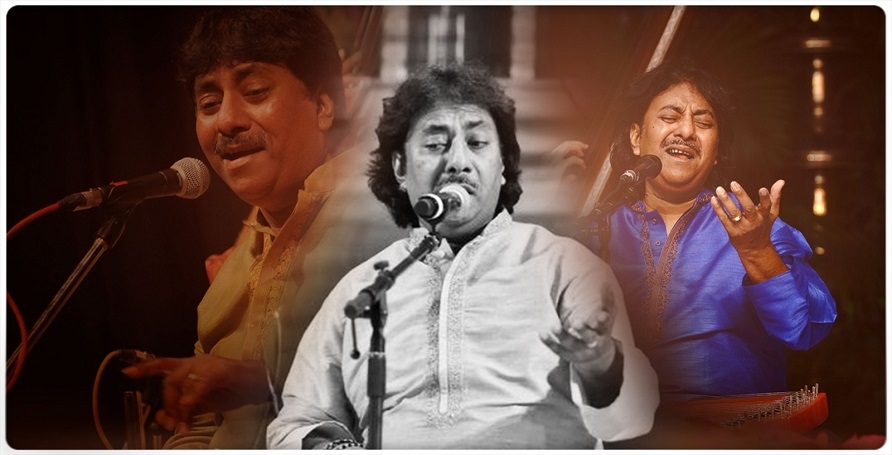Music maestro UstadRashid Khan no more
| Date :10-Jan-2024 |

KOLKATA :
MUSIC maestro Ustad Rashid Khan,
who has been undergoing treatment
at a Kolkata-based hospital for
prostate cancer, died at a city hospital this afternoon, West Bengal Chief
Minister Mamata Banerjee said. He
was 55.
“We tried our best but failed. He
passed away at around 3:45 PM,” an
official of the private hospital where
Khan was admitted said.
The Chief Minister who visited the
hospital said, “This is a great loss for
the entire country and the entire
music fraternity. I am in a lot of pain
as I still can’t believe that Rashid Khan
is no more.”
Ustad Rashid Khan left an enduring legacy with his soul-stirring notes,
his melodious voice echoing through
time and leaving an indelible imprint
on the rich heritage of Hindustani
music.
He is survived by his son, two
daughters, and wife.
Possibly the last living legend of
Rampur Sahaswan gayaki (style of
singing), Rashid Khan was recognised as the 31st generation of
Sangeet Samrat Mian Tansen, Known for his mastery in
the‘VilambitKhayal’ gayaki,
he captivated millions of
Hindustani vocal classical
music enthusiasts for more
than three decades.
Born in Badayun, Uttar
Pradesh, Rashid Khan’s initial training was under his
maternal grand-uncle,Ustad
Nissar Hussain Khan.InApril
1980,here located to Kolkata
at the age of 10 when Nissar
Hussain Khan moved there
with his grandfather.
Rashid Khan’s debut concert took place when he was
just 11, and by 1994, he had
gained recognition as a musician.
Deeply influenced by
Hindustani classical music
from an early age, Rashid
Khan commenced his music
lessons under the guidance
of his grandparent, Inayat
Hussain Khan.
Intherealmofmusicaltraditions, the Rampur Sahaswan gayaki shares a
close kinship with the
Gwalior gharana. This particular style is defined by its
medium-slow tempos, richly resonant voice, and intricate rhythmic play.
